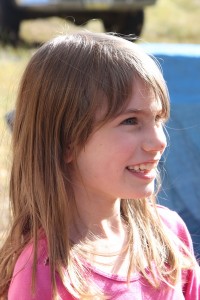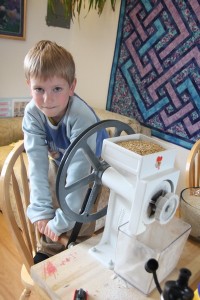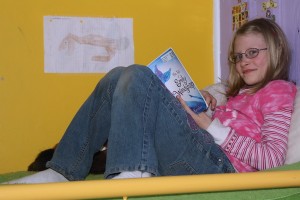I just got through The War of Art by Steven Pressfield last week.
My library had it on CD, which meant that my laundry finally got folded.
Pressfield starts out by defining resistance by its action and power, tying it to our main difficulty in writing (okay, he actually is very careful to keep the talk about ART and whatever one’s contribution to the world is. But for me, that’s writing).
Problem #1: Getting Started
He has a whole series of specific examples of delays to beginning the work, but especially because of my experience with depression, and the upcoming launch of Wyn Magazine, I was intrigued by Pressfield’s comments about (and waiting for) healing as a tool of Resistance, to prevent the beginning of a Great Work.

Image courtesy of Mihai Tamasila via stock.xchng
According to Pressfield there are whole communities of people investing such effort and resources into getting well that they aren’t doing much else.
In his book he says some people feel they need to be healthy before they can do, or make their art.
I have felt this way in a vague sense, thinking that what I wanted to say would have more legitimacy or authority if I’d passed some point of competency, but the idea of doing nothing until that point is a straightjacket of terror.
Why ‘terror’? (That is a rather melodramatic word, but it’s the best I have just now.)
Because without my art I am locked in the long white corridors or darkened rooms of myself. There is no escape. And that is terrifying.
Writing is the walking.
One foot in front of the other to travel these endless hallways, and slow familiarity teaches what direction could be more useful, and I eventually see a door, and my momentum feeds itself until I slam into that crashbar and break into the open air.

Image courtesy of Jenny Rollo via stock.xchng
I’ve had encounters with others, or their words, who feel that they cannot produce art without the brokenness inside them. Elyn Saks, in her Ted Talk quoted poet Rainer Maria Rilke who said, “Don’t chase my devils away, because my angels may flee too.”
I have wobbled on both sides of that line, and the perspective I find most-comforting is what Pressfield expresses in his book. He insists that healing is not a prerequisite, because the part that needs healing is completely separate from the part that is creating.
The experience of brokenness can make the creating part of you more useful, but somehow, in this one-way economy, that brokenness can only add depth to what already is.
I like this model, this container of words, because it suggests that the reasoning of second quote—about needing to keep the demons around—is misplaced.
Continue reading »
 This is the story of my ending up in a very unexpected and deep depression.
This is the story of my ending up in a very unexpected and deep depression.




 First, the bad news:
First, the bad news:




